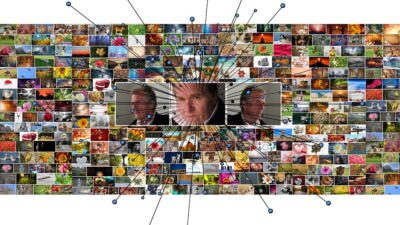The integration of Artificial Intelligence (AI) in healthcare marks one of the most significant advancements in medical technology in recent years. From improving diagnostic accuracy to personalizing treatment plans, AI is revolutionizing how healthcare providers manage patient care. This article explores the transformative impact of AI on healthcare, highlighting its applications, benefits, challenges, and future potential.
Understanding AI in Healthcare
AI encompasses a range of technologies, including machine learning, natural language processing, and advanced algorithms, all designed to mimic human cognitive functions. In the realm of healthcare, AI systems analyze vast datasets, identify patterns, and make predictions, enabling healthcare providers to make more informed decisions.
Enhancing Diagnostics
One of the most promising applications of AI lies in diagnostics. Traditional diagnostic methods often rely on the experience and intuition of healthcare professionals, which can lead to variability in results. AI, on the other hand, can analyze medical images, lab results, and patient histories with unprecedented speed and accuracy.
For instance, AI algorithms have been developed to detect conditions like cancer, heart disease, and neurological disorders from imaging studies such as X-rays, MRIs, and CT scans. A notable example is Google’s DeepMind, which has shown exceptional prowess in diagnosing eye diseases from retinal scans with accuracy that surpasses human specialists.
Personalizing Treatment
AI also aids in personalizing treatment plans, matching therapies to individual patient profiles. Machine learning algorithms can process data from genomic sequencing, electronic health records, and clinical studies to identify the most effective treatment options. This precision medicine approach minimizes the trial-and-error process often inherent in traditional treatment methods, leading to better patient outcomes and reduced healthcare costs.
For example, AI-driven platforms can recommend targeted therapies for cancer patients based on their unique genetic makeup, improving the chances of a successful treatment response.
Predictive Analytics
Another significant aspect of AI in healthcare is its ability to leverage predictive analytics. By analyzing historical data and trending patterns, AI can forecast disease outbreaks, identify at-risk patients, and optimize resource allocation. This capability is particularly critical in managing public health crises, such as the COVID-19 pandemic, where data-driven predictions can inform policy decisions and healthcare strategies.
Operational Efficiency
Beyond direct patient care, AI plays a crucial role in enhancing operational efficiency. AI-driven chatbots and virtual assistants streamline administrative tasks, such as appointment scheduling, patient inquiries, and data management, freeing up valuable time for healthcare professionals. Additionally, AI can assist in supply chain management and inventory control within healthcare facilities, ensuring that resources are utilized effectively.
Challenges and Ethical Considerations
Despite the immense potential of AI in healthcare, challenges remain. Data privacy and security are paramount concerns, especially given the sensitive nature of medical information. Ensuring compliance with regulations like HIPAA (Health Insurance Portability and Accountability Act) is crucial to maintain patient trust and confidentiality.
Moreover, ethical considerations surrounding AI decision-making must be addressed. The "black box" nature of some AI algorithms poses a problem, as it can be difficult for healthcare providers to understand how conclusions are reached. Ensuring transparency and interpretability is vital for integrating AI into clinical practice.
The Future of AI in Healthcare
The future of AI in healthcare looks promising, with continued innovations on the horizon. As more healthcare systems embrace AI technologies, we can expect improved diagnostic tools, greater efficiencies, and enhanced patient care. Collaborations between tech companies, healthcare providers, and regulatory bodies will be essential in navigating challenges and ensuring the ethical use of AI.
Conclusion
AI is not merely a trend; it represents a fundamental shift in how healthcare is delivered. By augmenting the capabilities of healthcare professionals and improving patient outcomes, AI is revolutionizing diagnosis and treatment. As the healthcare landscape continues to evolve, embracing AI will be crucial in meeting the demands of a growing and diversifying population, ultimately leading to a healthier future for all.



